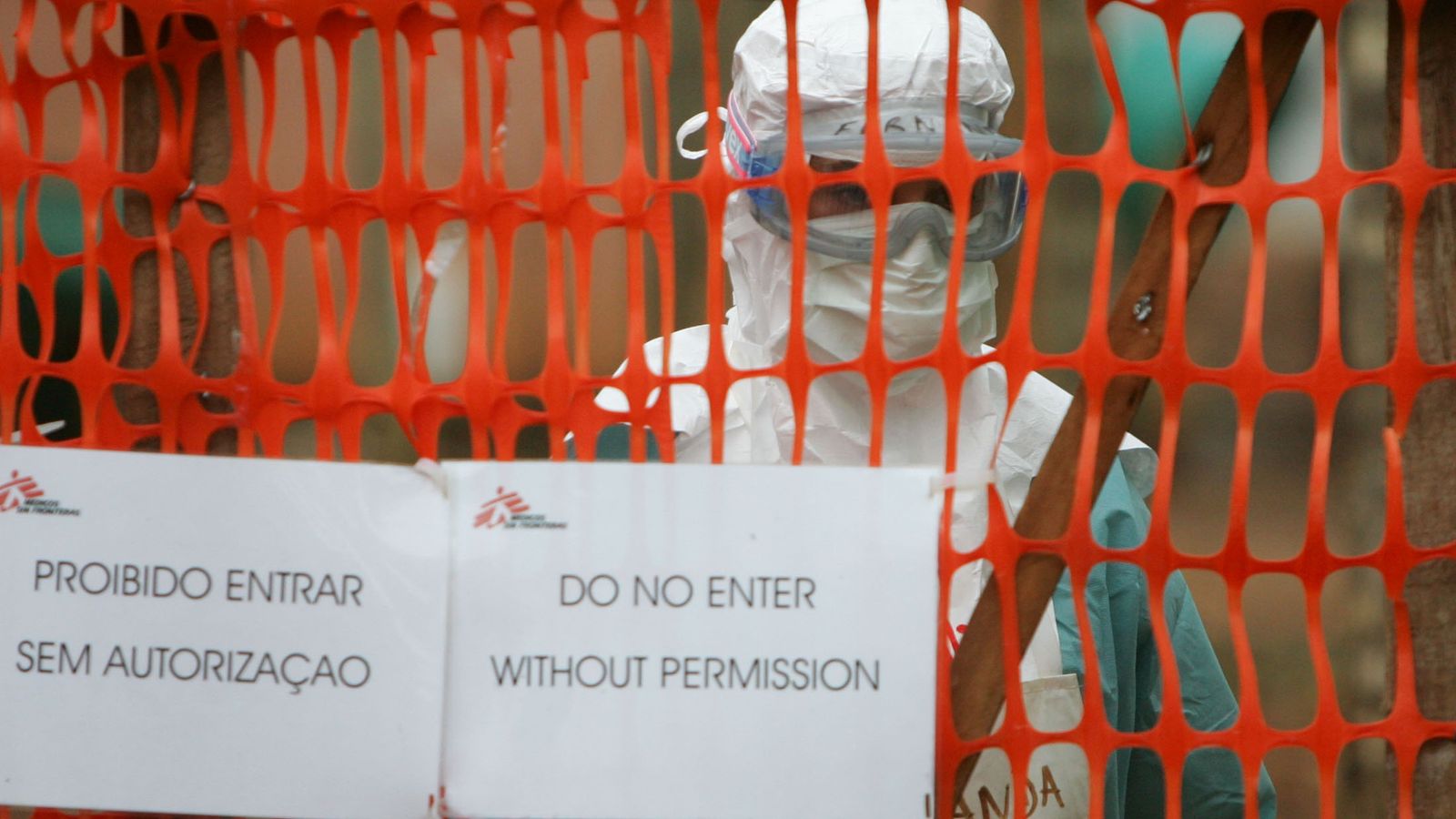Two cases of the deadly and highly contagious Marburg virus have been confirmed in Ghana.
The country’s health service said a lab had returned the positive results from two men, aged 26 and 51, who died last month.
Authorities are isolating contacts of the deceased and so far none have developed symptoms.
The World Health Organisation (WHO) says the disease has an average 50% fatality rate among humans and causes severe viral haemorrhagic fever.
It is transmitted by fruit bats and spreads among humans via bodily fluids and contact with materials such as bedding and clothes.
It is only the second outbreak of Marburg in West Africa. The first case in the region was detected last year in Guinea and no further cases were identified.
There have been a dozen outbreaks since 1967, mostly in southern and eastern Africa.
Ghana explosion: At least 17 killed and dozens injured in mining truck crash blast which leaves huge crater
UK talking to Ghanaian government about how it can help alleviate immigration problems, now-deleted tweet suggests
COVID-19: Ghana receives 600,000 free vaccine doses as part of global scheme
“(Ghanaian) health authorities have responded swiftly, getting a head start preparing for a possible outbreak,” said Matshidiso Moeti, WHO chief for Africa.
“This is good because without immediate and decisive action, Marburg can easily get out of hand.”
Marburg virus begins suddenly with symptoms such as high fever, severe headache, and muscle aches and pains.
The WHO says “severe watery diarrhoea, abdominal pain and cramping, nausea and vomiting can begin on the third day”, followed by “severe haemorrhagic manifestations” between day five and seven that may include bleeding from the nose, gums and vagina.
Death most often happens on day eight or nine after symptoms, following severe blood loss and shock.
Drugs and immune therapies to treat Marburg are being developed but there is not yet a vaccine, though early rehydration and treatment of symptoms can improve the chances of survival.











